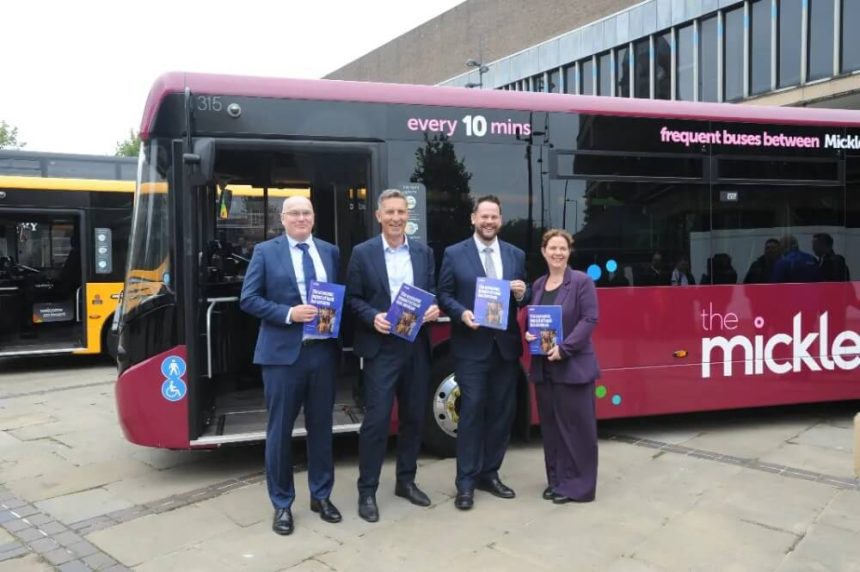On 5 September, I and a team of colleagues went to Derby to launch our latest research that quantifies the huge economic impact of buses and highlights the exceptional value for money of public investment in local services.
Our event, organised with the help of Trentbarton, saw Minister Simon Lightwood, East Midlands CCA Mayor Claire Ward, and Scott Knowles from East Midlands Chamber add their perspectives on the crucial role of bus for local economies.
CPT commissioned KPMG to produce this crucial independent research on the scale and breadth of economic (and social) benefits delivered by local bus services to the British economy in order to demonstrate just how far investment in them by government matters and how far it offers excellent value for money.
The results — set out in an excellent report — make for a riveting read:
- Bus operators directly employ 105,000 people and support employment of a further 53,000 in the sector’s supply chain — which provides an £11.3bn boost to the British economy.
- Bus passengers spend almost £40bn each year in shops, cafes, restaurants, and leisure destinations, driving the growth of local economies.
- Bus commuters earn £72 billion a year and pay taxes of £15 billion.
- Ten million bus journeys every day have benefits for us all, totalling £15.6 billion each year that include better connections to jobs, education opportunities worth £8.7 billion and benefits to health worth £2.8 billion every year.
- Without local bus services, some passengers might find alternative ways to travel but some trips would simply not take place, replaced by online purchases instead or by no spending at all. The research estimates the impact of this could mean High Streets lose £9.2 billion per year.
- Other road users benefit from reduced congestion and improved safety worth £600 million a year.
- Bus can deliver a real bang for government’s buck: every additional £1 invested in bus can secure economic benefits equal to £4.55.
As I don’t need to tell you, not all these figures are new but, brought together, they really do showcase the economic impact of local bus services and the way they support so many aspects of our lives while protecting our environment.
Bus passengers spend almost £40bn each year in shops, cafes, restaurants, and leisure destinations
The research also confirms that, alongside health and environmental benefits, a typical package of public investment to improve infrastructure for buses and support better services, can generate returns of £4.55 for every £1 invested — which is exceptional value for money.
It proves what we know — just how much some solid public investment in buses and bus infrastructure offers a speedy, flexible way to support green growth across the whole country.
The minister also underscored the importance of buses for providing communities with an affordable, green travel choice which will help grow our economy and improve access to jobs.
Claire drew attention to various excellent case studies in the report — some of which highlight innovation in places like Nottingham and the provision of the Skyline service at her local East Midlands Airport.
Scott also welcomed the way the research provides considerable detail at a regional level — where employers need good bus routes if they are to grow their talent base from further afield and offer employment to people who do not own a car.
I believe the national and regional analysis (for English regions and combined authorities) in the report is the most important aspect of this research.
Increasingly, spending will be devolved to nations and regions, and this more granular lens enables us and our members to talk with confidence to local leaders about the difference their choices around bus investment can make.
We need to do exactly the same with the coach sector, so that’s why we’ll be publishing the companion report, highlighting the diverse and under-appreciated economic impact of coaches, later this autumn.



























